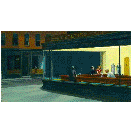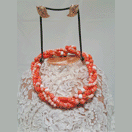Honey & Infant Botulism
Why is honey the only food that is singled out for a warning label stating that it should not be fed to infants less a year old?
"Do not feed honey to infants under one year of age" or some similar warning is common on honey labels. This is because honey may contain spores of the bacterium Clostridium botulinum. Botulism spores are similar to seeds in that once in a favorable environment they will germinate and grow into their vegetative phase. Infant botulism is caused when enough C. botulinum spores enter their vegetative state and start growing rapidly in an infants immature digestive tract producing a toxin that impacts the child's neurological functions. Newborn babies lack the intestinal micro flora that prevent healthy children and adults from getting sick after ingesting C. botulinum. About half of reported cases of infant botulism have occurred in babies less that two months old. While is is believed that by six months of age most infants will have developed their intestinal flora to the point where they become resistant to C. botulinum, an additional six months has been added to the warning by the national Center for Disease Control (CDC) as a safety factor.
Symptoms of infant botulism include muscle weakness or loss of control such as droopy eye lids, weak cry, feeble sucking, drooling, lethargy, irritability constipation, and progressive 'floppiness,' all of which may follow an initial fever. An infant exhibiting these symptoms should receive prompt medical attention. Recovery is almost certain as long as the condition is diagnosed and treated early and the baby condition is diagnosed and treated early and the baby has not gotten brain damage. Infant botulism should not be confused with food borne botulism resulting from the consumption of preformed botulism toxin that can sicken older children and adults.
Infant botulism can occur in babies that are not fed honey. This is because Clostridium botulinum spores are ubiquitous in our environment and found in soil, water, and on dust floating in the air. It is not known how many spores must be ingested before infant botulism will occur, or why only some babies seem to become sick. However, it does seem that chances of contracting the illness depends a lot on the immediate environment of the infant and th overall health and susceptibility of the baby. Infants my contract botulism from the surfaces in the environment breathing dust in the air of from water or food, as most food will contain C. botulinum spores unless they have been processed in a way that has cleaned off or destroyed the spores and bacteria. The states of Pennsylvania, Utah, Arizona and California tend to have higher instances of infant botulism that other states. It is believed that these states may have soils that have higher than average levels of C. botulinum spores
C. botulinum in its vegetative stage can not survive in honey due to honey's antibacterial and antimicrobial properties that are will documented. In fact, when honey is ripe with a moisture content below about 18 percent, nothing harmful to humans can grow in it. Raw honey that is ripe is the only natural unprocessed foot that, for all intensive purpose will never spoil when stored properly in an air tight moisture proof container.
There are several ways that honey inhibits the growth of bacteria and mold. The high sugar content and pH of honey inhibits the growth of molds and other pathogens in much the same way that sugar is used to preserve jams and jellies. Ray honey that has been unheated and unfiltered also contains the enzyme glucose oxidase which converts into hydrogen peroxide and water as it breaks down. In addition, honey is hygroscopic. This means that it draws moisture to itself. As a result, when honey comes in contact with bacteria, it will suck the moisture out of the bacteria killing off the microscopic critters. In fact, if you have botulism growing in a Petri dish and add raw honey, the honey will the botulism. Given that honey itself will kill off botulism in its vegetative stage and that C, botulinum spores are prevalent throughout our environment and thus present in many foods besides honey, why do we focus specifically on feeding honey to infants under the age of one?
To date I have not been able to find any documentation of a single case of infant botulism that can be proven to be caused by honey. This may be because it would be considered immoral to conduct a study where babies were purposely fed honey contaminated with botulism spores in an effort to clearly prove cause and effect. However, this begs the question: why is honey the only food that is singled out for a warning label stating that is should not be fed to infants less than a year old?
When researchers investigate instances of infant botulism, they find that in most cases the child has not consumed honey, however there have been some cases where the babies had been fed honey at some point prior to getting sick. When this information is combined with the fact that about five percent of the thousands of honey samples tested have beed found to contain C. botulinum spores, this identifies honey as a risk factor and establishes a correlation between honey and infant botulism.
This is the reason why the CDC, the American Acadent of Pediatrics (AAP), Health Canada, along with other public health associations and the National Honey Board all agree that there is enough of a scientific link between honey and infant botulism to warrant the precautionary measure of a warning statement. However, any scientist worth his or her salt will tell you: one of the most basic principles of science is that correlation does not prove causation. This basic truth seems to what the CDC, AAP, Health Canada, and National Honey Board want us all to forget.
Now don't get me wrong, I am not claiming that just because it has yet to be defitively proven that honey isa cause of infant botulism that it is impossible for babies under one year of age to contract botulism from contaminated honey. After all, high concentrations of spores have been found in honey at times. What gets me is that the same can likely be said for many other foods. As a result I will admit that whild label warnings may be prudently cautious and appropriate in the case of honey. I am at a loss to understand why honey is the only food item singled out with regard to carrying a warning statement.
Where are these spores coming from in the rare cases where honey has beed found to be severely contaminated with C. Botulinum spores? Some scientists believe that high concentrations of botulism spores may enter honey during rare and extreme conditions within the hive, or when dead bees get into the honey. However, since botulism spores can not grow in nectar that is being processed into honey inside the hive, not can it grow in ripe honey that is in the comb or in the jar, it seems most likely that contamination occurs sometime during the honey harvesting, extracting, and bottling processes.
Efforts to produce honey free from botulism spores start by thoroughly cleaning your honey processing area, and all equipment prior to use for extracting and bottling. Everyone involved in the processing of honey should wash their hands before work. These are common sense actions that should be done by everyone on a regular basis, anyway.
If you want to go the extra mile, open windows should be closed to prevent dust buildup. To be extra cautious, outdoor shoes should be left at the door and only clean indoor shoes should be worn while processing the honey so as not to track dirt into the processing area. As unlikely and inconvenient as these suggestions sound, they may be the easiest way to ensure your honey is free from significant numbers of botulism spores, especially if you keep your bees in one of the states identified as a higher than normal risk. While is is possible to irradiate honey in order to kill off any spores it may contain, such measures are inconvenient and expensive, and well beyond the reach of an average bee keeper.
If you are among those of us who are unable, or simply unwilling to take such measures to ensure your honey's purity, then err on the safe side and only sell your honey to customers that are older that one year of age.

